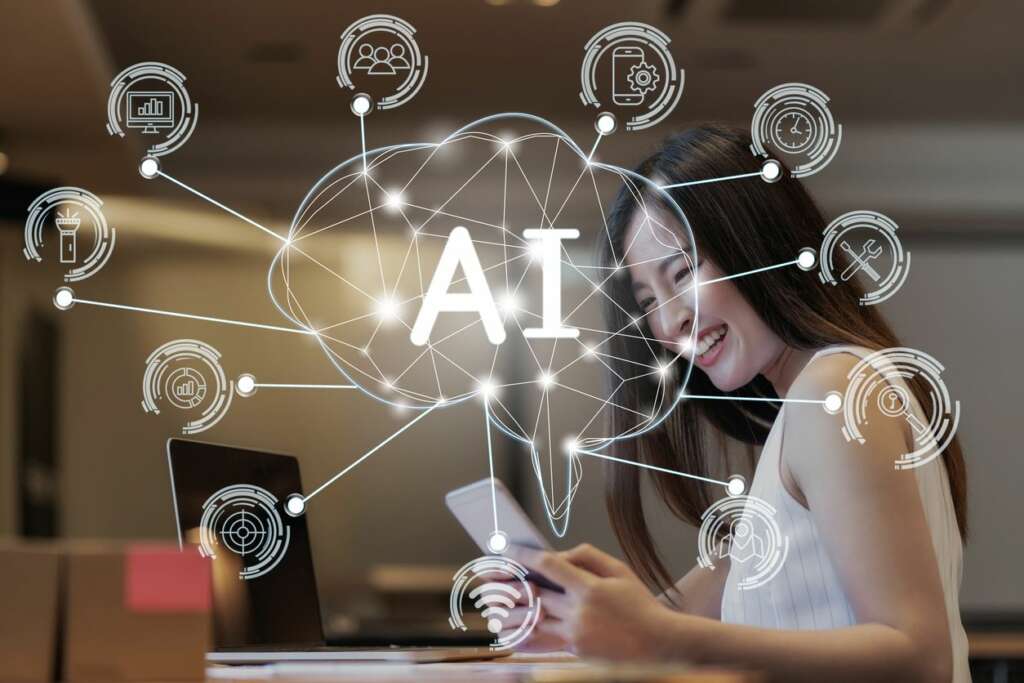
Will AI replace the people finders?

By Neil Armstrong, Chief Commercial Officer, Tribepad
Everyone seems to be talking about ChatGPT right now. This tool for generative AI is making waves, and adding to the fear that artificial intelligence has created from the start – will AI take my job? A recent report by Goldman Sachs estimates that a quarter of all work could be replaced by generative AI. But digging into the data, it’s the administrative side of work which will be automated – freeing up time for the things and thoughts that matter. When it comes to talent acquisition, recruitment and human resources, those fears are unfounded. AI will, rather than replace our jobs, make them easier – if used in the right way.
How AI can help recruiters?
AI can help streamline processes and automate repetitive tasks. It can help with candidate sourcing, CV screening, scheduling preliminary interviews, and even onboarding. Anything that requires synthesis of data can benefit from some use of automation. And by freeing up time wasted on this admin, HR professionals can focus on more strategic and high-value activities that require a human centred approach. Research from Hibob found that the average HR manager spends 38 days a year on admin tasks – time that could be better spent elsewhere.
Take for example filtering. If you know there are some key skills and experience you need for a job, AI can help take a first parse through applications to bring out the most relevant. It can even help carry out preliminary interviews by asking standardised questions and analysing candidate responses. There are reports of Amazon using AI to identify CVs with similar characteristics to their high performers. But what it can’t do is interview them to get a sense of cultural fit, personality, and drive.
AI can be used to make data-driven decisions about the recruitment process, such as analysing trends and insights about the process to see which channels are most effective at sourcing candidates, or where candidates are most likely to drop off, and making amends to fix that. The correct data allows professionals to take a proactive approach to solving problems, even before the arrive.
Ghosting is a huge problem within the industry. Two thirds (65%) of candidates have been ghosted by a prospective employer or recruiter, leaving them anxious, depressed, and with a bad taste in their mouth. Technology enables an automatic reply, tailored to a degree, so at least they know where they stand.
Erik Brynjolfsson, Professor at the Stanford Institute for Human-Centred AI recently explored at the World Economic Forum how AI can be harnessed to work out skill adjacencies that our workplaces require. One of the challenges for our society going forward is to work to have better quality jobs. It’s not about jobs for jobs sake, but jobs in which people feel empowered to do great work, energised and want to go to work, and where the company gets great results. The biggest skills gaps at the moment are around creative and analytical thinking – skills that right now AI just can’t manage. Having AI in the mix could be a chance for recruiters to demonstrate just how strategic and critical their role is. Far beyond just getting people into jobs, it’s about getting the right people into the right jobs.
A word of caution
However, you may have seen a number of challenges that ChatGPT isn’t as great as it sounds. We know that ChatGPT can in fact be hugely biased in its language when writing job adverts, and plays into structural inequalities across a number of characteristics. Relying on it too much could undo the work that is being done to improve diversity and inclusion – work that needs to be done. Because the AI is not diverse by design – as in the content that goes into it isn’t checked for EDI, neither will the output be.
Keeping it human
But AI won’t replace recruiters. We tend to get dazzled and slightly scared by the next shiny thing, but like photography didn’t replace painting, phones didn’t replace computers, AI will not replace HR. Key to understanding HR is that ‘H’ – human. At Tribepad we’re passionate about people and technology, but only as far as it goes to improving the lives of people. A great job can transform lives, and recruiters need to ensure they are tapped into the culture of an organisation, the values of an individual, and the relationship between the two to ensure a great fit.
AI has the potential to automate many HR and recruitment tasks, but I don’t see it replacing people entirely any time soon. It’s a tool that can complement work and make individuals more productive and able to focus on strategic aspects of their role. Smarter recruiters and HRteams will adapt and learn how to leverage AI, working together to create more efficient and successful hiring processes.
Author Bio:
Neil Armstrong, Chief Commercial Officer, Tribepad. With 20 years experience in internet, telecoms and technology organisations, Neil leads sales, marketing, account management and partnerships at Tribepad – an award-winning recruitment software business in Sheffield. Tribepad is used by more than 25 million people across the globe in 16 languages. Clients include The BBC, Tesco, Subway, NHS Professionals, Grant Thornton and The Church of England.


